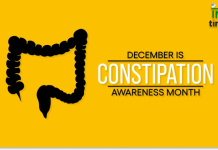
World Antibiotic Awareness Week (WAAW) 2024, observed from November 18 to 24, aims to increase global understanding of antibiotic resistance and promote the responsible use of these critical medicines. Organized by the World Health Organization (WHO) and other global health bodies, WAAW addresses the need to protect antibiotics and emphasizes collaborative efforts to combat the growing threat of antibiotic resistance.
Why Is World Antibiotic Awareness Week Important?
Antibiotics have transformed healthcare by making bacterial infections treatable, allowing for safe surgeries, cancer treatments, and other medical advancements. However, misuse and overuse of antibiotics have accelerated bacterial resistance, rendering many treatments less effective. World Antibiotic Awareness Week emphasizes that without effective antibiotics, even routine infections could become dangerous, making awareness and prevention essential for global health.
Goals of World Antibiotic Awareness Week 2024
- Educate on Antibiotic Resistance: Increase public understanding of antibiotic resistance and its consequences.
- Promote Responsible Use: Encourage individuals, healthcare professionals, and industries to use antibiotics only when necessary.
- Advocate for Global Action: Urge governments and organizations worldwide to prioritize combating antibiotic resistance.
- Inspire Behavioral Changes: Motivate people to adopt practices that prevent resistance, such as completing prescribed courses and avoiding self-medication.
Theme of World Antibiotic Awareness Week 2024: “Antibiotics: Handle with Care”
This year’s theme, “Antibiotics: Handle with Care,” underscores that antibiotics are precious resources that must be used cautiously. The theme reminds everyone—from patients to policymakers—that responsible antibiotic use is critical to preserving their effectiveness.
Understanding Antibiotic Resistance
Antibiotic resistance occurs when bacteria adapt to withstand the drugs designed to kill them. This resistance can lead to “superbugs,” bacteria that are nearly impossible to treat with current antibiotics. Such infections result in prolonged hospital stays, increased medical costs, and higher mortality rates. Without urgent action, antibiotic resistance could reverse decades of medical progress.
Key Factors Contributing to Antibiotic Resistance
- Overuse in Healthcare and Agriculture: Antibiotics are often overprescribed in healthcare and used excessively in agriculture, especially in livestock.
- Incomplete Treatment Courses: Stopping antibiotics too early leaves surviving bacteria that can develop resistance.
- Self-Medication: Taking antibiotics without a prescription for illnesses like colds, which are viral and don’t respond to antibiotics, promotes resistance.
- Lack of Infection Control: Inadequate hygiene and infection prevention measures in healthcare and public settings contribute to the spread of resistant bacteria.
The Impact of Antibiotic Resistance on Health
- Longer Hospital Stays: Patients with resistant infections often require extended treatments.
- Higher Mortality Rates: Resistant infections increase the risk of complications and fatalities.
- Rising Healthcare Costs: Treatments for resistant infections are more complex and costly.
- Threats to Modern Medicine: Procedures like organ transplants and cancer therapies, which rely on antibiotics, face higher infection risks due to resistance.
How Antibiotic Stewardship Can Help
Antibiotic stewardship promotes appropriate antibiotic use to preserve their effectiveness. Stewardship programs are essential in healthcare settings to ensure antibiotics are prescribed responsibly and used only when truly necessary. Key strategies include:
- Education for Health Professionals: Training doctors and pharmacists on when and how to prescribe antibiotics effectively.
- Public Awareness Campaigns: Informing the public about the dangers of misuse and the importance of following prescriptions.
- Tighter Regulations on Agriculture: Limiting antibiotic use in farming to reduce the spread of resistance from animals to humans.
The Role of Individuals in Preventing Antibiotic Resistance
Everyone can contribute to slowing antibiotic resistance with simple actions:
- Use Antibiotics Only as Prescribed: Never take antibiotics without a doctor’s prescription.
- Complete Your Prescribed Course: Finish the entire course even if you feel better to ensure all bacteria are eliminated.
- Practice Good Hygiene: Regular handwashing and proper food handling reduce the need for antibiotics by preventing infections.
- Don’t Share Antibiotics: Sharing antibiotics can lead to misuse and resistance.
The One Health Approach: A Unified Effort
The One Health approach highlights that human, animal, and environmental health are interconnected. Efforts to reduce antibiotic use in one area, like agriculture, benefit overall health by reducing the spread of resistant bacteria.
Policymakers’ Role in Combating Antibiotic Resistance
Governments play a crucial role in tackling antibiotic resistance by:
- Implementing National Action Plans: Policies to monitor and regulate antibiotic usage.
- Investing in Research and Development: Funding for new antibiotics and alternative treatments.
- Strengthening Guidelines for Veterinary Use: Enforcing limitations on antibiotic use in livestock.
Global Collaboration: The Path Forward
Antibiotic resistance is a worldwide issue requiring international cooperation. WHO, alongside organizations such as the United Nations and the Food and Agriculture Organization (FAO), work together to set global standards, share data, and support countries in implementing effective AMR (antimicrobial resistance) strategies.
Conclusion
World Antibiotic Awareness Week 2024 emphasizes the urgent need to protect antibiotics and encourages collective responsibility to address resistance. By understanding the importance of antibiotics and adopting responsible practices, everyone can play a part in preserving these life-saving medicines for future generations.
FAQs
1. Why is World Antibiotic Awareness Week observed?
It aims to raise awareness about antibiotic resistance and promote the responsible use of antibiotics to prevent resistance.
2. How does antibiotic resistance impact global health?
Resistance increases the risk of untreatable infections, raising healthcare costs and mortality rates, and threatening medical advancements.
3. What is the One Health approach in antibiotic resistance?
It’s an approach that recognizes the interconnected health of humans, animals, and the environment, encouraging cross-sector collaboration to combat resistance.
4. How can individuals contribute to reducing antibiotic resistance?
By using antibiotics responsibly, completing prescribed courses, practicing good hygiene, and avoiding self-medication.
5. Why is antibiotic resistance especially dangerous for future healthcare?
Resistant bacteria could make common infections untreatable, complicate surgeries, and undermine treatments reliant on antibiotics.
World Antibiotic Awareness Week calls for a united front to protect antibiotics, ensuring their effectiveness for the generations to come.



































